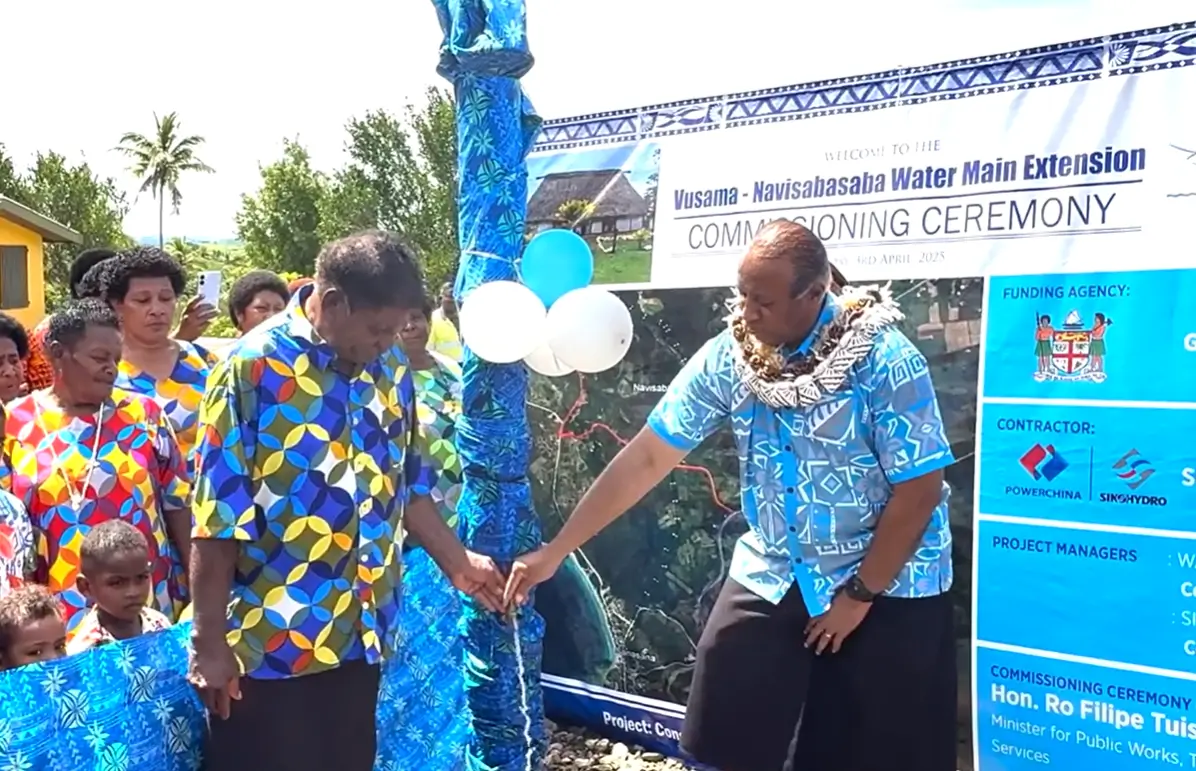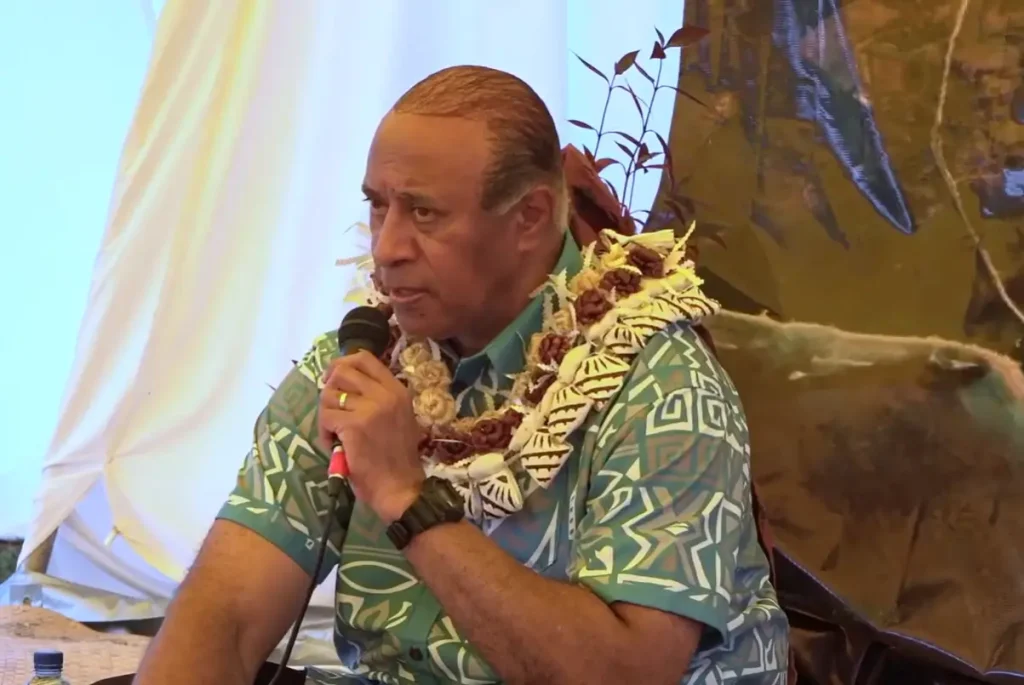
After decades of relying on contaminated wells and boreholes, the villages of Vusama and Navisabasaba in Nadroga finally have safe, treated water-thanks to a $3.4 million government-funded project that’s transforming lives and safeguarding health.
The Vusama- Navisabasaba Village Water Project was officially commissioned last week, addressing decades of water insecurity and health concerns caused by contaminated wells and boreholes.
The project, delivered by contractor Sinohydro, connects both communities to the main water line, marking a significant milestone in rural infrastructure development.
“This project has now been completed, the Vusama – Navisabasaba water project, where the two villages are now connected to the main, costing 3.4 million. So, it’s a critical project because the two villages were suffering from a lot of water-borne diseases in the last two to three decades, I believe. There are some boreholes, wells around here, but as you understand it’s been contaminated, not only human activity but also because of farming and all those issues. So there had to be a connection made, and as a government it is our focus to connect those who are unconnected, not only here but in the various parts of Fiji moving forward” Tuisawau highlighted.

Government officials emphasised that access to clean, treated water is not only a basic necessity but critical to public health and economic resilience, especially in areas close to key tourism developments such as the InterContinental and other nearby resorts.
Assessments are underway to identify other vulnerable communities lacking safe drinking water, with a focus on prioritising high-risk areas over the next five to ten years.
“At the moment we are also doing an assessment of all the rural water needs with the assistance of UNICEF to identify and document areas which are similar to Vusama and Navisabasaba, lacking in safe water or readily available water. The government needs to really plan for that, put in place measures and strategies in order to address those moving forward, especially in the next five to ten years, and prioritising those which are at high risk in terms of water-borne diseases, such as Vusama” he stressed
By Joeli Ragoneliwa